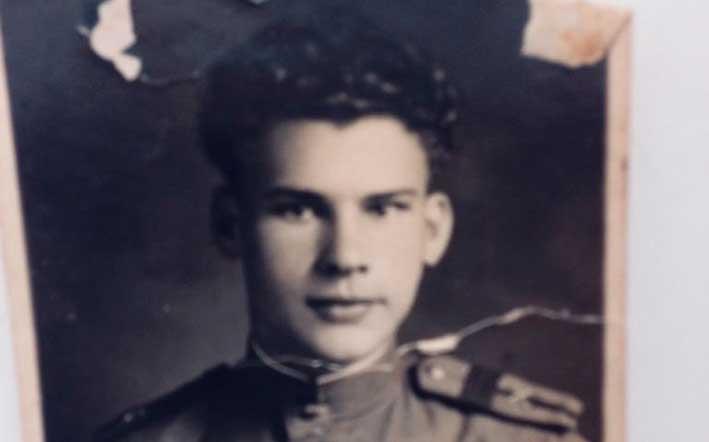Despite self-isolation, (it's been almost two months now that Russians have been "advised" not to go out, but in fact, if you decide to ignore the "advice" given by the authorities, you will be immediately taken to the police station) the heated debates in society never end. As elsewhere around the world, Russian people are split in two: those who insist on a general quarantine and those who are concerned more about the health of the economy. No surprises here. Well, there is one thing which I would prefer to conceal. However, due to its relevance, let's talk about money. Loving my own country dearly, no one could be prouder of the following figures (consider in tow). In case of mine - there should probably come into existence the set term for national secondhand embarrassment: "Russian middle-class embarrassment". As for the stay-at-home alimentation that is promised by government, the limited base of recipients will get about €146 per month. The amount is set based on a living wage. But in his recent interview, Vladimir Putin announced that to be included in the middle-class range you should have an income of €202 per month. OK, then the compensation amount does seem fair.
On this background, the joke of the popular sports commentator Vasily Utkin turns out to be not evil, but topical. Today mass media and social network accounts are overflowing with recommendations on how to spend time at home: "learn languages", "finally sort out the wardrobe", "start doing yoga". In the course of a radio show, the host asked the commentator: "So what will we be like after quarantine?""Beggars," responded Utkin.

The pandemic, as a hot topic, has overshadowed all political acts. If one has ever had the opportunity to talk to a Russian citizen closely, it would be obvious how important and sensitive topics of World War II and the Victory Day associated with it (9 May) are for the nation. The Maltese have asked me "why?" frequently and I hope that in the next year our life will be so calm and balanced that it would be possible to go deeper into history and sociology. Since public archives are not accessible to the public, it makes sense to research family narratives and speculations - if it will be allowed, of course, because the Duma is preparing a law on "distortion of history". Criticism of the USSR during military operations or simply a different point of view will become a criminal offense.
Now, I will just quote lines from a song: "There is no family in Russia without a hero to be reverenced". The statistics are ambiguous, yet historians suggest that the figure is about 28 million. That's the total number of people who died. That's a lot!
The remembrance of war and terrible losses passes through generations. In recent years, the sacred respect for the Great Patriotic War (that's how people in Russia call the period of World War II, in which the USSR participated) has been amplifying. It can be assumed that for the authorities and Putin personally, the topic of war (and especially the victory) is a symbol of national unity, power, rightness and even sanctity of the state. Consider his words about the potential new war of any country against Russia: "As victims of aggression, as martyrs, we will get to the Paradise, and they will simply croak." Interestingly, in a recent article, Will Coronavirus change our attitudes to death? Quite the opposite, by Israeli historian Yuval Noah Harari for The Guardian, there is such fragment: "The only modern ideology that still awards death a central role is nationalism. In its more poetic and desperate moments, nationalism promises that whoever dies for the nation will live forever in its collective memory. Yet this promise is so fuzzy that even most nationalists do not really know what to make of it. How do you actually 'live' in memory? If you are dead, how do you know whether people remember you or not?"
Is it a single personal opinion or is the Russian idea of dying for the Fatherland truly outdated? However, shortly before the planned celebration of the 75th anniversary of the Victory, several events had to be postponed. The risk of infection is excessively high. Veterans, for whose sake the parade and the procession were conceived primarily, are at risk: by the end of the war, they should have been at least 23, plus 75 years... yes, they are a 100 years old now. The average life expectancy of a man in Russia has reached its maximum, but even today, according to the Ministry of Health, it does not exceed 74 years. So, there are very few war veterans left. There is also another reason: the military parade is not a trendy zoom-party. Without people, foreign VIP guests, it will not create the impression of victory. Tanks on empty streets can only scare the spectators. Today's enemy is the same for the whole world. And neither artillery nor nuclear weapons scare it.
"Are you upset that there won't be a celebration?" I asked my grandmother, who was young during the war but witnessed all the events. Every day she waited for her beloved father from the front. My great grandfather Ivan volunteered. "Come on, it's a memory, but we shouldn't go too far with it," Valeria smiles as she picks up the porcelain cup with the fragrant tea. Russians like to brew this drink in a cosy kettle and add different herbs, berries and lemon. They drink it with milk as well as in Malta. The main thing is, as they say, it is not "empty" - "This war should seem something very distant to schoolchildren in general. Like, for example, I imagine Napoleon's campaign today. People were fighting for peace, no matter how strange it sounds. Let's enjoy the peace."